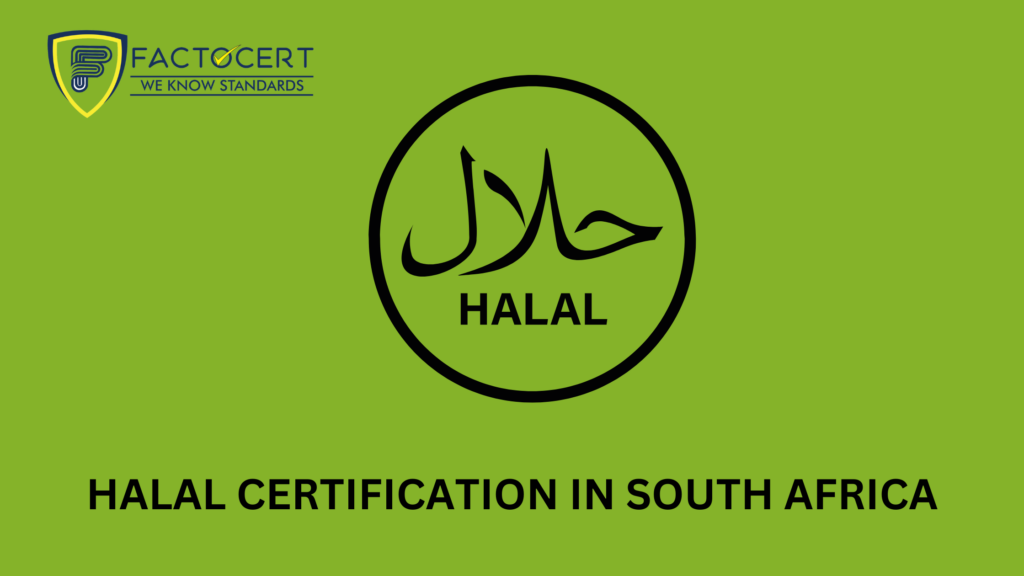Halal Certification in South Africa: The Gateway to a Lucrative Market and Consumer Trust
Halal Certification in South Africa boasts a rich history. The Muslim Judicial Council Halaal Trust (MJCHT), established in 1945, claims the world’s first Halal regulatory body title. Today, Halal certification remains crucial for businesses catering to the Muslim market and wanting to expand their reach. Let’s delve into the significant benefits of Halal certification in South Africa.
Halal Certification in South Africa: Building Trust
Muslims constitute 1.5% of South Africa’s population, translating to a significant consumer base. Earning Halal Certification in South Africa signifies that your products comply with Islamic dietary laws and ethical guidelines. This builds trust and credibility with Muslim consumers, allowing them to purchase and consume your offerings confidently. This trust translates to brand loyalty and a broader customer base.
Increased Market Access
Halal Certification in South Africa is strategically positioned as a gateway to Africa, a continent with a burgeoning Muslim population exceeding 15%. Halal certification allows you to tap into this vast market potential. By complying with Halal standards, you can export your products to numerous African nations and beyond, significantly expanding your market reach and revenue streams.
Enhanced Brand Image
Halal Certification in South Africa goes beyond religious compliance; it signifies ethical sourcing, responsible production practices, and adherence to stringent hygiene standards. This translates to a positive brand image, portraying your company as one that values ethical conduct and caters to diverse consumer needs. This reputation can attract a wider audience, even those who don’t specifically require Halal products.
Compliance with Regulations
South Africa adheres to international Halal standards, making certification essential for businesses involved in import and export. Certified products ensure compliance with regulations, avoiding potential legal issues and delays at borders. This streamlines your operations, and fosters trust with international trading partners.
Improved Quality Control Processes
The Halal certification involves rigorous audits of your production facilities, ingredients, and handling procedures. This necessitates implementing robust quality control systems to maintain compliance. This translates to improved hygiene standards, better ingredient tracking, and a more streamlined production process, ultimately leading to higher-quality products.
Standing Out from the Competition
In today’s competitive landscape, differentiation is critical. Halal certification sets your brand apart, mainly if you cater to a niche market segment. It demonstrates your commitment to inclusivity and cultural sensitivity, making you a more attractive choice for discerning consumers.
Potential for Government Support
The South African government recognizes the importance of the Halal industry. Businesses with Halal certification may be eligible for government grants, tax breaks, or participation in trade missions focused on Halal markets. This government support can provide a significant financial boost and open doors to new opportunities.
Attracting Investment
Investors seeking ethical and socially responsible businesses often value Halal certification. This certification demonstrates your commitment to ethical sourcing and accountable practices, making your company a more attractive investment proposition. This can open doors to new funding opportunities and fuel your business growth.
Opportunities in Beyond Food Products
Halal certification isn’t limited to just food products. With the growing Muslim consumer base, there’s a rising demand for Halal-certified cosmetics, pharmaceuticals, and even tourism services. By expanding your certification scope, you can cater to this growing market segment and diversify your product offerings.
A Strong Foundation for Global Expansion
Halal certification in South Africa provides a strong foundation for global expansion. The internationally recognized standards followed by South African Halal certification bodies ensure your products comply with global Halal requirements. This opens doors to exporting to Muslim-majority countries worldwide.
Investing in the Future
The global Halal market is projected to experience significant growth in the coming years. You’re strategically positioning yourself to capitalize on this expanding market by obtaining Halal certification. This future-proofs your business and ensures long-term sustainability and growth.
Conclusion
Halal certification in South Africa offers numerous benefits for businesses. It fosters trust with Muslim consumers, expands market access, enhances brand image, ensures regulatory compliance, and improves quality control processes. By embracing Halal certification, you can unlock opportunities, achieve sustainable growth, and become a key player in the global Halal market.
Why Factocert for Halal Certification in South Africa
We provide the best Halal consultants who are knowledgeable and provide the best solutions. To learn how to get Halal certification, contact us at contact@factocert.com. Halal consultants in South Africa work according to Halal standards and help organizations implement ISO certification with proper documentation.
For more information, visit Halal Certification in South Africa.





